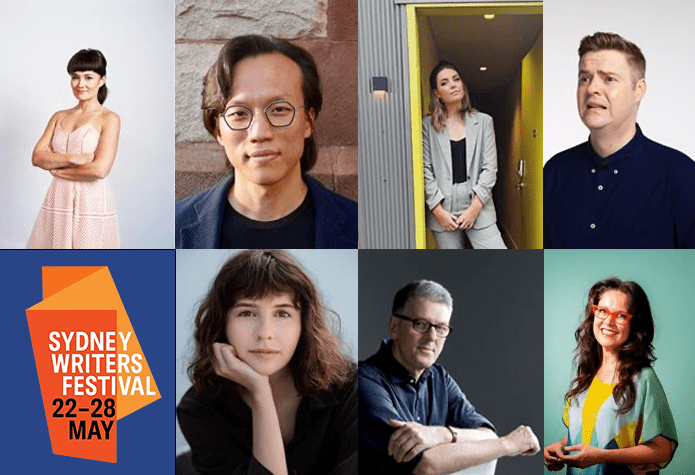In an intriguingly mixed display of attempted comedy and first-class oration, the Sydney Writers’ Festival Great Debate was entertaining overall, but at times cringeworthy.
Despite this, the speakers must be given significant credit. To grapple with the perennial question of the future is an onerous task on a good day. In a world plagued by climate change, enduring colonialism, racism, a regression of women’s rights and the rise of nationalism, this query only becomes all the more daunting. Try making the discourse comedic, and you are venturing into shaky territory.
The Sydney Writers’ Festival’s Great Debate tackled this problem head on, with two teams arguing “whether the future is still worth waiting for.” The affirmative team was led by journalist David Marr, alongside world champion debater Bo Seo, and First Nations author and academic Amy Thunig. The negative team was led by journalist Annabel Crabb, with teammates Jean Hinchliffe, founder of the Sydney contingent of School Strike 4 Climate, and comedian Tom Ballard. Spirits were high as the adjudicator for the evening, Yumi Stynes, relished the imminent “almighty brain massage” while lamenting over the demise of public debate.
True to his acclaim, Seo was by far the most impressive speaker of the night, delivering a structurally faultless and academically rich address. Upon leading with an excerpt of Malthusian theory, and a quote by Yeats, Seo contended that elegiac and strident prose is wrong: we must not be mocked, as Donne once wrote, by the rising of the sun. Seamlessly blending comedy with his devastatingly sharp mind, Seo was a model of the “colossal contest of persuasion and wit” that the debate was promised to be.
Hitchliffe, as a voice of young Australians, similarly performed well. Her speech meticulously balanced humour and social commentary, accurately depicting Gen Z’s attitudes towards what she described as a “crisis of crises” —noting the climate crisis, housing crisis, mental health crisis, and cost of living pressures.
Thunig brought the debate back to reality, calling out “team white on right” who had the “caucasity” to give up in the face of adversity. A great orator, she delivered a powerful critique of contemporary doomsday rhetoric, noting that if society has regressed so dramatically over the past few hundred years – coinciding with the better part of the colonial project – it also has the capacity to improve.
Nonetheless, in the face of such a powerful critique of colonisation, the audience let out a giggle when Thunig recognised that the debate fell on national Sorry Day, her point being that to give up on the future now would also mean giving up on reconciliation. Such a nonchalant audience response revealed an embarrassing misunderstanding of what is comedy and what is not. Thunig left on a powerful note: “If you give up now, you’re letting privilege win.” She also pointed out that only the non-white speakers managed to honour the seven minute time limit — an apt observation.
Thunig was a hard act to follow, yet Ballard, the archetypal millennial comedian, gave it his best shot. He spoke at an impressively high WPM (words per minute), allowing him to cover a plethora of topics such as Samsung flip phones, the frightening prospects of artificial intelligence, Channel 7 running Australian Idol, and the powerlessness of society to avoid the traps of capitalism. Whilst at times, these were humorously perceptive — “hello fellow middle class wankers” — his greatest asset was ultimately his entertaining cadence.
For all their impressive credentials, team leaders David Marr and Annabel Crabb did not quite match the persuasive standard of their teammates. Marr, whilst humorously self-aware, noting that he “will be dead before the world dies”, decided to dedicate a bizarrely long period of time to hating drag queens because it makes “men less beautiful”. Despite being a queer man himself, the current hostility towards drag performers rendered these comments humourless at best. However, he concluded strongly with an appeal to conclusively abolish laws allowing religious schools to discriminate against students on the grounds of sexual orientation or gender identity.
Crabb responded with the case for “team realism”, using a large portion of her speaking time to admire the formidable strength of the opposition. She looked to the future with discontent, explaining that there are no more Yellowstone nor Fleabag episodes left to watch, and further suggested we make the most of things that are soon to be banned (i.e., vapes); her core argument, although a little incohesive, being that “things are sh*t and they’re getting worse”. During her rebuttal, Crabb brought out a lump of coal in a tongue-in-cheek reference to Morrison’s parliamentary antics, driving home her team’s call to address the climate crisis.
In the end, the audience was invited to vote via a Slido link, which determined that the debate left 65% of the audience hopeful for the future, and 36% unconvinced. Beyond the confines of Slido, one can’t help but wonder where broader Australia stands.





